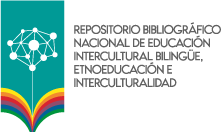Por favor, use este identificador para citar o enlazar este ítem:
http://repositoriointerculturalidad.ec/jspui/handle/123456789/4127Registro completo de metadatos
| Campo DC | Valor | Lengua/Idioma |
|---|---|---|
| dc.contributor.advisor | Simbaña Pillajo, Freddy Enrique, director | - |
| dc.contributor.author | Pilca Salazar, Nelly Alexandra | - |
| dc.date.accessioned | 2017-07-25T21:44:22Z | - |
| dc.date.accessioned | 2020-04-29T17:04:53Z | - |
| dc.date.accessioned | 2020-05-04T03:26:33Z | - |
| dc.date.available | 2017-07-25T21:44:22Z | - |
| dc.date.available | 2020-04-29T17:04:53Z | - |
| dc.date.available | 2020-05-04T03:26:33Z | - |
| dc.date.issued | 2017-07 | - |
| dc.identifier.other | https://dspace.ups.edu.ec/handle/123456789/14424 | - |
| dc.identifier.uri | http://8.242.217.84:8080//xmlui/handle/123456789/4127 | - |
| dc.description | Through the case study carried out in San Antonio, Cangahua Parish, the aim is to know the expectations of the indigenous family on education, to show how education contributes to the development and progress of the family, commune, the person, and in which areas or spaces improves it. For the development of the present investigation the qualitative method was used, through the use of the instrument of direct observation and the realization of interviews, the same that were applied to the parents, members of the commune, teachers and students. After compiling the information and knowing the expectations of the families, it is evident that the education has not managed to improve and to fulfill the expectations of the same ones. Community education has become a victim of comparison with the educational system of the Hispanic sector, being a great mistake since the realities, needs and context are different. The commune seeks to strengthen its cultural identity through education, creating spaces for dialogue, coexistence and change of experiences. The family, through education seeks a better lifestyle, job and economic stability in order to meet their expectations. | en_US |
| dc.description.abstract | A través del estudio de caso realizado en la comuna San Antonio, Parroquia Cangahua, se pretende conocer las expectativas de la familia indígena sobre la educación, evidenciar cómo la educación contribuye al desarrollo y progreso de la familia, comuna, de la persona en sí, y en qué ámbitos o espacios mejora a la misma. Para el desarrollo de la presente investigación se empleó el método cualitativo, a través del uso del instrumento de la observación directa y la realización de entrevistas, los mismos que se fueron aplicados a los padres de familia, miembros de la comuna, docentes y estudiantes. Tras compilar la información y conocer las expectativas de las familias, se evidencia que la educación no ha logrado mejorar y cubrir las expectativas de las mismas. La educación comunitaria se ha convertido en víctima de comparación con el sistema educativo del sector hispano, siendo un gran error, ya que las realidades, necesidades y el contexto son distintos. La comuna busca fortalecer su identidad cultural a través de la educación, creando espacios de diálogo, convivencia y cambio de experiencias. La familia, a través de la educación, busca un mejor estilo de vida, estabilidad laboral y económica, con el fin de satisfacer sus expectativas. | en_US |
| dc.language.iso | spa | en_US |
| dc.publisher | Universidad Politécnica Salesiana – UPS | es_ES |
| dc.rights | Atribución-NoComercial-SinDerivadas 3.0 Ecuador | * |
| dc.rights | openAccess | en_US |
| dc.rights.uri | http://creativecommons.org/licenses/by-nc-nd/3.0/ec/ | * |
| dc.subject | EDUCACIÓN INTERCULTURAL BILINGÜE | es_EC |
| dc.subject | FAMILIAS INDÍGENAS | es_EC |
| dc.subject | IDENTIDAD - CULTURA | es_EC |
| dc.subject | PEDAGOGÍA | es_EC |
| dc.subject | ENSEÑANZA - APRENDIZAJE | es_EC |
| dc.subject | EDUCACIÓN PARA EL DESARROLLO | - |
| dc.subject | CANGAHUA | - |
| dc.title | Expectativas de la familia indígena frente a la educación análisis de caso en la comuna San Antonio, parroquia Cangahua | en_US |
| dc.type | bachelorThesis | en_US |
| dc.ups.carrera | Educación Intercultural Bilingüe | - |
| dc.ups.sede | Sede Quito | - |
| Aparece en las colecciones: | 1.30 Educación | |
Ficheros en este ítem:
| Fichero | Tamaño | Formato | |
|---|---|---|---|
| UPS-QT12001.pdf | 1,45 MB | Adobe PDF | Visualizar/Abrir |
Este ítem está sujeto a una licencia Creative Commons Licencia Creative Commons

